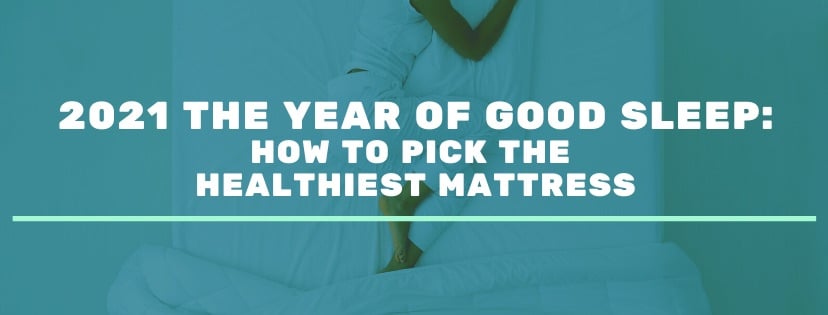The Power of Gratitude: How Being Thankful Improves Your Health and Sleep
In today’s fast-paced world, stress, anxiety, and sleepless nights have become common struggles for many. With endless responsibilities and constant distractions, finding peace and balance can seem difficult. However, one simple practice has been shown to offer profound benefits to both mental and physical well-being—gratitude. Practicing gratitude, or intentionally focusing on the things we’re thankful for, can greatly improve health, reduce stress, and significantly enhance the quality of sleep.
Let’s explore the science behind gratitude and why incorporating it into your daily life can lead to better health and deeper, more restful sleep.
1. Gratitude Lowers Stress and Anxiety
One of the most immediate effects of practicing gratitude is its ability to reduce stress and anxiety. When we’re feeling overwhelmed or anxious, our bodies release stress hormones like cortisol, which can have a negative impact on both mental and physical health. Over time, chronic stress can lead to issues such as high blood pressure, heart disease, and even a weakened immune system.
However, gratitude has the opposite effect. Focusing on the positive aspects of life shifts your attention away from worries and anxieties. When you take a moment to reflect on what you’re grateful for, your brain reduces the production of cortisol and instead releases feel-good chemicals like dopamine and serotonin. These hormones help regulate mood and promote a sense of calm.
This sense of calm is critical for getting a good night’s sleep. When you’re less anxious, it’s easier to relax both physically and mentally, allowing you to fall asleep faster and stay asleep throughout the night. By practicing gratitude regularly, you help train your brain to focus on positive thoughts rather than stressors, which can significantly improve sleep quality over time.
2. Gratitude Enhances Mood and Well-being
Gratitude doesn’t just reduce stress—it also elevates your mood and promotes emotional well-being. When you practice gratitude, you activate regions in the brain associated with pleasure, empathy, and social connection. Studies show that people who focus on gratitude tend to experience higher levels of happiness, satisfaction, and emotional stability.
The connection between gratitude and mood is crucial for better sleep. A positive mood throughout the day can lead to more peaceful sleep at night. On the flip side, feelings of frustration, sadness, or anxiety can contribute to insomnia or restless nights.
By making gratitude a daily habit, you can boost your overall outlook on life, making it easier to rest with a clear, positive mind. Writing in a gratitude journal before bed is an effective way to focus on the good things in your life and cultivate a mood that promotes restful sleep.
3. Gratitude Lowers Blood Pressure and Supports Heart Health
Gratitude is not only good for your mental health—it also benefits your physical body, particularly your heart. Research has shown that people who practice gratitude regularly experience lower blood pressure and healthier heart rates.
When your body is in a state of stress or worry, your heart rate increases, and blood pressure spikes. This is part of the “fight or flight” response, which can be harmful when experienced over long periods. By practicing gratitude, you can help counteract these effects by promoting relaxation and lowering your body’s stress response.
A healthy cardiovascular system is also essential for good sleep. When your body is calm and your blood pressure is regulated, it’s easier to relax at night and drift into deep, restorative sleep.
4. Gratitude Improves Sleep Quality
One of the most significant benefits of practicing gratitude is its direct impact on sleep quality. Studies have found that people who regularly practice gratitude tend to fall asleep faster, experience fewer sleep disturbances, and wake up feeling more refreshed.
Gratitude helps to clear the mind of negative or racing thoughts that often keep us awake at night. When you take time to reflect on the positive aspects of your day, it creates a sense of peace and contentment, making it easier to transition into sleep.
One effective strategy is to incorporate gratitude into your bedtime routine. For example, keeping a gratitude journal on your nightstand and writing down three things you’re thankful for each night before bed can help signal to your brain that it’s time to relax. By focusing on positive thoughts, you prepare your mind and body for a more restful sleep.
5. Gratitude Boosts the Immune System
Gratitude doesn’t just improve sleep and reduce stress—it can also boost your immune system. A growing body of research shows that people who regularly practice gratitude have stronger immune responses, making them less likely to fall ill and more resilient to everyday stressors.
This connection is likely due to the impact gratitude has on stress reduction. When you’re less stressed, your body can allocate more energy toward maintaining overall health, rather than constantly dealing with the harmful effects of chronic stress.
A strong immune system is also important for good sleep. When your body is healthy and functioning optimally, it’s easier to rest and recover during the night. Conversely, when your immune system is compromised, it can lead to sleep disruptions and a longer recovery time from illness.
6. Gratitude Fosters Emotional Resilience
Gratitude also promotes emotional resilience, helping you cope better with life’s challenges. When you focus on the things you’re thankful for, it becomes easier to bounce back from difficult situations. This positive mindset allows you to handle setbacks with grace and reduces the likelihood of becoming overwhelmed by negative emotions.
Emotional resilience is key to maintaining good sleep habits. When you’re able to navigate challenges without becoming consumed by stress, you’re less likely to experience sleepless nights. Practicing gratitude gives you the emotional tools to stay balanced and calm, even in the face of adversity.
7. Gratitude Creates a Positive Bedtime Routine
A great way to ensure better sleep is to establish a bedtime routine that includes gratitude. As mentioned earlier, keeping a gratitude journal is an effective method to focus your thoughts on the positive before going to bed. By taking just a few minutes each night to reflect on what went well during the day, you create a positive mental environment for rest.
This simple habit helps train your brain to associate bedtime with feelings of peace and contentment. Over time, your body will begin to recognize this routine as a signal that it’s time to wind down, making it easier to fall asleep.
Conclusion: Gratitude for Better Health and Sleep
Incorporating gratitude into your daily life can transform both your health and sleep. By reducing stress, improving mood, lowering blood pressure, boosting the immune system, and fostering emotional resilience, gratitude lays the foundation for better sleep and overall well-being.
If you’re struggling with sleepless nights or high levels of stress, consider starting a gratitude practice. Whether it’s writing in a journal, reflecting on positive moments before bed, or simply expressing thanks throughout the day, gratitude has the power to improve your life in meaningful ways. So, take a moment to be thankful—it could be the key to unlocking better health and sleep.













 Welcome to the opening installment of our Year of Good Sleep wellness series! Today’s post is the first of several articles from local wellness experts, bringing you tips and advice on how to stay healthy in 2021–and ultimately bring you better sleep.
Welcome to the opening installment of our Year of Good Sleep wellness series! Today’s post is the first of several articles from local wellness experts, bringing you tips and advice on how to stay healthy in 2021–and ultimately bring you better sleep.